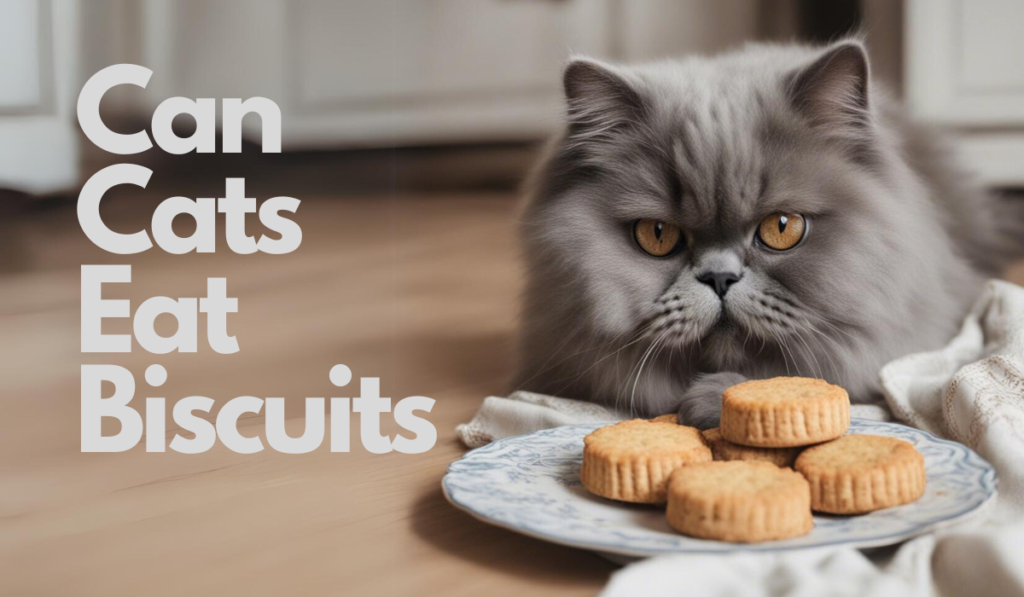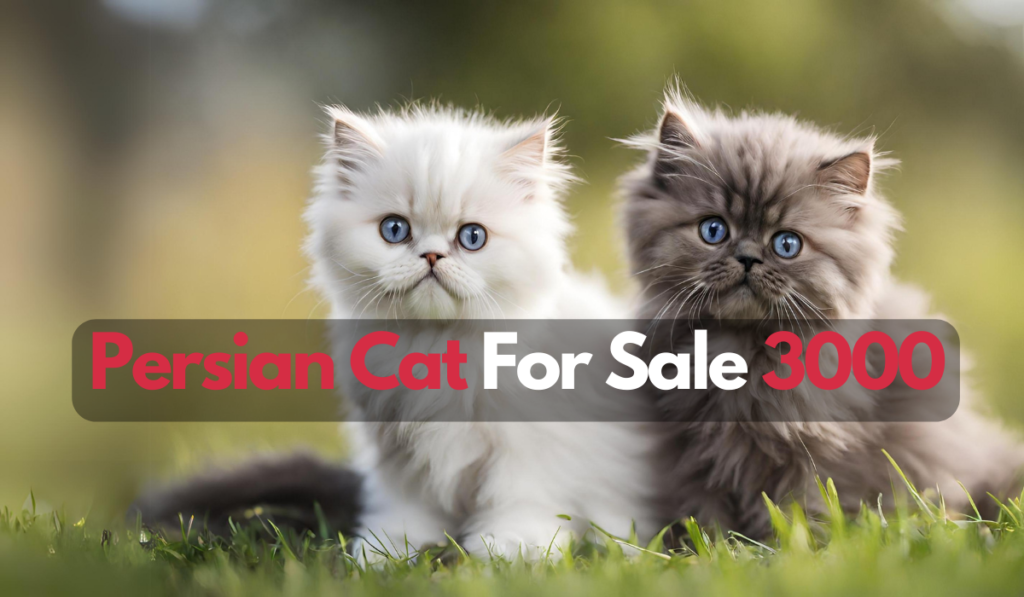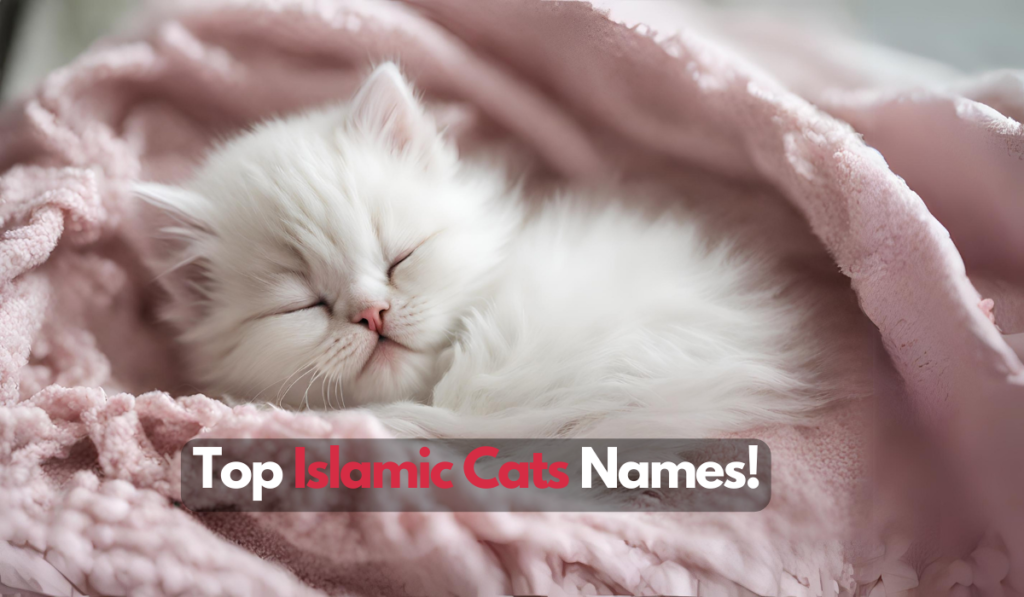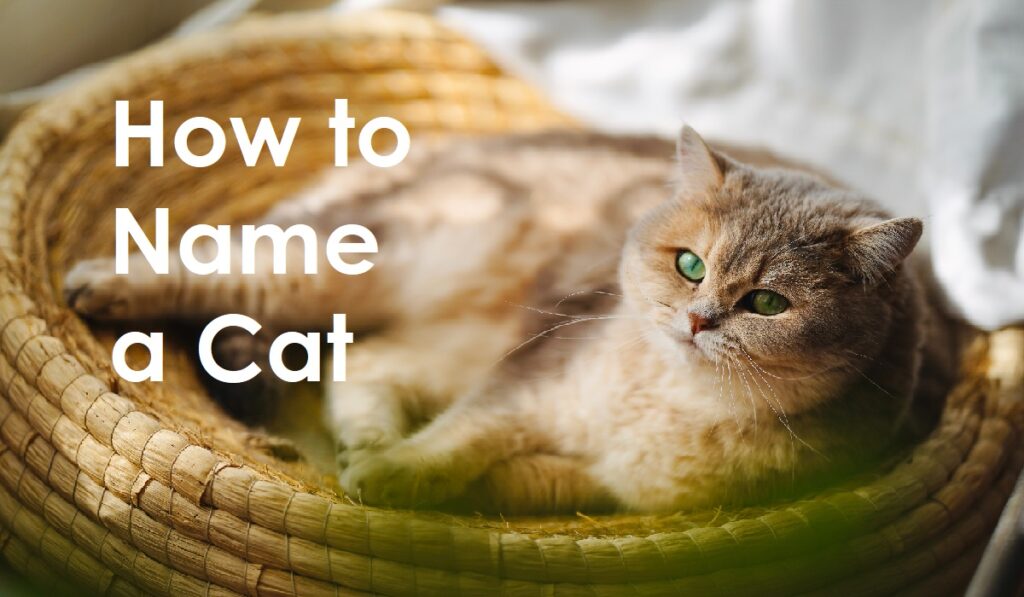Biscuits are a delicious snack that many people like to enjoy during breakfast, tea, or as a dessert. However, you might wonder if it’s safe or suitable for our cherished feline friends to also have a taste of these treats. safe or potentially harmful for cats to eat biscuits?
Can Cats Eat Biscuits? In this article, we will examine the advantages and disadvantages of feeding biscuits to cats, offering important information to help you make an informed decision before sharing your biscuit with your kitty.
Biscuits won’t harm cats, but they aren’t a healthy choice for them, so it’s better to steer clear of giving them to your cat.
What are Biscuits?
Biscuits represent a class of baked food items that may encompass both sweet and savoury variations. Generally composed of a blend of flour, fat, and a leavening agent such as baking powder or yeast, biscuits exhibit a diverse range of shapes, sizes, flavours, and textures, contingent upon the ingredients and methodologies utilised in their creation.
Biscuits typically consist of flour, salt, butter, and a leavening agent, such as baking powder. Some biscuits might additionally incorporate vegetable shortening, additives, flavourings, and artificial colors. While these ingredients may not be inherently toxic, none of them contribute to the overall health of your cat.
Can Cats Eat Biscuits ?
Technically, YES cats can partake in biscuits in moderation. However, it is discouraged as a routine component of their diet. Biscuits are characterised by high carbohydrate content and an abundance of empty calories, predisposing cats to weight gain and potential health issues such as diabetes and heart disease. Furthermore, some biscuits may contain ingredients that are harmful to cats, including chocolate, raisins, and specific spices.
Notably, chocolate is particularly toxic to cats, with even small quantities capable of inducing severe health complications or fatality. Raisins and certain spices can also provoke stomach discomfort and vomiting in cats.
Should you choose to offer your cat a biscuit as an occasional treat, exercise caution by providing only a minimal portion and steering clear of biscuits containing harmful constituents? Ensuring your cat has access to an ample supply of fresh water is also imperative, as biscuits can contribute to dehydration.
Are Biscuits Good for Cats?
NO, Biscuits aren’t good for cats because !!
Cats are obligate carnivores, meaning their bodies are designed to primarily thrive on a meat-based diet. In contrast, biscuits are high in carbohydrates and offer limited nutritional value to cats, potentially presenting health concerns.
One notable issue arising from feeding cats biscuits is the risk of weight gain. Excessive consumption of biscuits can lead to obesity, thereby heightening the susceptibility to various health issues like diabetes, heart disease, and arthritis.
Furthermore, biscuits often contain high levels of salt, which can result in dehydration for cats by promoting fluid loss. If you choose to offer your cat a biscuit as a treat, ensure they have access to plenty of fresh water afterwards.
All things considered, it is advisable to refrain from feeding biscuits to your cat. Numerous healthier and more nutritious treats are specially formulated for feline consumption.
If you’re seeking a healthy treat for your cat, consider options like cooked chicken or fish, small cheese pieces, or commercially available cat treats. You can even explore homemade cat treat recipes available online.
Should you have any dietary concerns about your cat, it’s wise to consult your veterinarian. They can assist in creating a tailored meal plan that suits your cat’s unique nutritional requirements.
Are Biscuits Harmful to Cats?
Potentially, yes While small amounts of biscuits won’t harm cats, they are not suitable as a regular part of their diet. Biscuits are rich in carbohydrates and empty calories and may contain harmful ingredients like chocolate, raisins, and certain spices. Here are the risks associated with feeding cats biscuits:
- Weight Gain: Biscuits are calorie and carbohydrate-rich, offering limited nutritional value. Overindulgence can result in weight gain, increasing the risk of health issues like diabetes, heart disease, and arthritis.
- Digestive Issues: biscuits may pose digestive challenges for cats, potentially leading to stomach discomfort, vomiting, and diarrhea.
- Nutritional Deficiencies: Biscuits lack essential nutrients cats need, potentially leading to nutritional deficiencies.
- Toxic Ingredients: Some biscuits may contain toxic substances like chocolate, raisins, or certain spices. Chocolate is particularly dangerous for cats, even in small quantities.
Check out this article to learn can cats eat roti?
Alternatives to Biscuits for Cats
Consider these alternatives to biscuits for your feline friend:
Cooked Chicken or Fish: Cats relish the taste of meat, and offering cooked chicken or fish in boneless pieces makes for a healthy and nutritious treat. Always ensure there are no bones in the meat.
Small Cheese Pieces: Cats also enjoy cheese, but it’s important to provide it in moderation due to its high fat and calorie content.
Commercial Cat Treats: Numerous cat treats are available on the market, designed specifically for feline nutritional needs. Select treats that are safe and free from harmful ingredients.
Homemade Cat Treats: Crafting your own cat treats at home is an option with many recipes accessible online. When preparing homemade treats, use cat-safe ingredients and avoid sugar or salt.
Here are some additional guidelines for treating your cat:
- Treats should only constitute up to 10% of your cat’s daily diet; moderation is key.
- Steer clear of treats containing harmful ingredients like chocolate, raisins, and certain spices.
- Always ensure your cat has access to fresh water after enjoying treats.
If you’re uncertain about which treats are suitable for your cat, consult your veterinarian. They can assist in selecting treats tailored to your cat’s specific dietary requirements.
Conclusion
Biscuits are a popular human food that may tempt some cats to try a bite. Nonetheless, biscuits are an inappropriate dietary choice for cats, as they incorporate ingredients that either lack significance or pose risks to feline well-being. Biscuits are abundant in starch, fat, salt, and, at times, additives or flavourings that may lead to digestive complications, excessive weight gain, obesity, and various other ailments in cats.
Cats, being obligate carnivores, rely on meat and animal proteins as essential components of their diet for optimal health and vitality. Therefore, biscuits should be avoided or given only in very small amounts as an occasional treat. Instead of biscuits, cats should be fed a balanced and nutritious diet that meets their specific needs.







